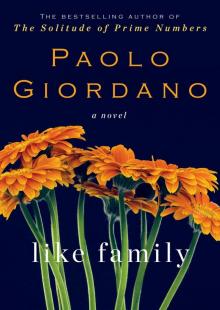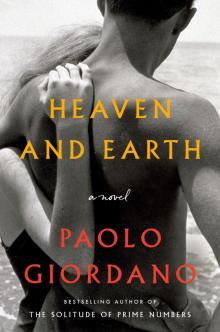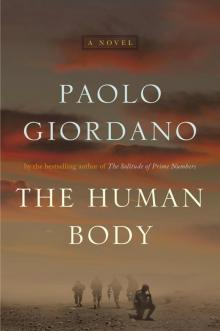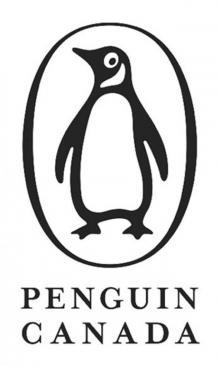- Home
- Paolo Giordano
Heaven and Earth Page 4
Heaven and Earth Read online
Page 4
My father’s friend coughed constantly into a crumpled handkerchief, then examined it for traces of something. I asked permission to go outside and get some air.
After a few minutes, the girl joined me. I was smoking a cigarette behind the wall.
“I have some grass, if you want,” she said.
She pulled a small plastic envelope out of her pocket. She asked me for a cigarette, then with precise gestures emptied out the tobacco. Her fingernails were painted, the polish several days old. “Do you know how to make a crutch?” she asked. While I made it, she mixed the grass with the tobacco. She lit up the joint and we took a few tokes each.
“Is it serious?” I asked her.
The girl shrugged as she blew on the tip, making it gleam red. “He’ll die, I think.”
I told her my name and somewhat awkwardly held out my hand.
“I’m Violalibera,” she replied.
“What a beautiful name.”
She grinned self-consciously, forming two dimples. “I had another name, but I didn’t want it anymore.”
“What was it?”
She looked aside for a while, undecided. “It was Albanian,” she answered finally, as if that were enough.
I didn’t know what else to say, I was afraid I’d been intrusive, so I asked her: “Do you ever come to the Scalo?”
“What’s that?”
“Kind of an outdoor club, by the sea. They show films. And there’s a bar, but it only sells beer and horse-meat sandwiches.”
“How disgusting.”
“They’re a little greasy. But you get used to it.”
We finished smoking, both of us absorbed in our thoughts.
“Can you give me some?” I asked her. Bern and the others would be thrilled. They often mentioned the idea of buying some grass, but they never had the money. “I’ll pay you.”
Violalibera pulled out the little envelope. “Keep it. I have more.”
She stuck a piece of candy in her mouth and offered me one. Then we went back into the house and she served us almond milk. The friend had a coughing fit that caused the milk to go down the wrong way. My father went over to him, but didn’t know how to help him. Violalibera told him not to worry, and slapped the man on his back until he stopped coughing; then she brought the tray with the pitcher back to the kitchen. For the rest of the time I had to keep my chin pressed against my chest so I wouldn’t burst out laughing.
My father was sad on the way back. He asked me if I felt like taking a little walk on the seafront promenade, maybe have an ice cream. I was anxious to get back to the masseria; there were only a few days left and I was wasting all that time, but I didn’t want to let him down.
We ended up on the beach of Santa Sabina. The sand was firmly packed, fishermen’s boats swayed near shore. My father took my arm.
“Giovanni and I used to come fishing here as boys,” he said, pointing to an indefinite spot offshore. “We would return home with buckets full of fish. You could do that then, there weren’t all the rules we have now. Whatever you caught was yours.”
He rotated the cone in his fingers, smoothing the ice cream with his tongue.
“I’d like to come back to live here one day. What do you think?”
“I think Mom would never agree to it.”
He shrugged. At the end of the pier was a darkened amusement ride, the seats tied together by a chain.
“Giovanni knew your friend’s father.”
“Cesare?”
“No. The father of the other boy. Bern, right?”
He was looking at me very closely. Had my grandmother told him about Bern? I hoped he wouldn’t say anything else, but he went on: “They called him ‘the German.’ Nobody knows where he ended up.”
“Bern’s father is dead. He told me himself.”
He winked at me. “He doesn’t give me the impression of being very sincere.”
“Should we head home, Dad?”
“Wait a minute. Don’t you want to know why he’s called ‘the German’? It’s a curious story. Have you ever heard of the tombaroli?”
I recalled seeing a short paragraph on a page in a history book. I kept silent.
“It’s full of underground tombs around here. You can find anything in there: arrowheads, obsidian, ceramic shards. As a boy I picked up a thing or two myself. As I told you, at that time whatever you found was yours. But for the German and his friends it was different. They came here on vacation and instead of going to the beach they devoted themselves to archaeology. So to speak.”
He wiped his sticky lips and fingers with the ice-cream napkin, then crumpled it and tossed it away.
“They dug at night. When they’d filled up, the German loaded everything into a van and went to sell the goods in Germany. He’d made good money. One year he arrived in Speziale in a Mercedes. The carabinieri went looking for him. So you know what he did? He emptied a huge tomb all at one time, then he left and never came back. It caused quite a stir in Speziale, you can just imagine. Giovanni says everyone talked about it.”
The seagulls didn’t budge as we walked by. They screeched and flapped their wings nervously.
“Let’s go home, please,” I said in a whisper.
* * *
—
ALTHOUGH I DIDN’T WANT to admit it, that story left me troubled. When I was in the reed bed with Bern again, I couldn’t let myself go. The roots scraped my back and the mud on my elbows bothered me. I felt as if there were a thousand eyes on us.
A fighter-bomber tore through the sky over the tops of the reeds. Then there was a rustling sound, and when I snapped my head up to look, I saw the grass swaying and heard footsteps hurriedly moving off. I told Bern, but he didn’t pay any attention to me.
“It must have been a cat. Or you imagined it.”
Later the others found us under the pergola, pretending to wait for them to play skat as usual. Tommaso barely said hello to me. By then he and I spent all our time competing for Bern’s attention.
After a few minutes Cesare also appeared. He smiled at me distractedly, then turned to the boys: “The chicken coop has to be cleaned out. Who’s coming to help me?”
Bern and Tommaso exchanged dark looks, pretending not to have heard him. With a kind of resignation, Nicola said, “I’ll be there in a minute.”
Cesare stood there waiting a few more seconds. Then he nodded to himself and left.
Bern set down a winning combination of cards. As he reshuffled the deck, I thought about the way he pronounced all the other German words in the game. He must have learned them from his father, I imagined. Then I forced myself to chase away that suspicion.
* * *
—
THAT YEAR my departure coincided with Tommaso’s eighteenth birthday. On the last night we had a lot to celebrate, a lot of reasons to drink ourselves into a stupor.
We’d brought a bag with a change of clothes to the beach and I undressed behind a low wall. I put on a pair of rope sandals, a skirt I’d bought in the spring with my mother, and a top. The fabric was slightly itchy on my salt-caked skin.
I remember what the others were wearing as well: Tommaso’s mustard-yellow tee, Bern’s black one with ZOO SAFARI on it, which he would still have ten years later, and Nicola’s flashy shirt. I remember my anguish, which grew stronger hour by hour, at the thought of leaving the following morning.
When we reached the Scalo, the sky was pink. I showed the boys Violalibera’s grass; although Nicola wanted to try it right away, we decided to save it for later. Nicola and Bern had planned a surprise for Tommaso: they had set aside a bottle of gin and some pineapple juice. We mixed them in a jug. The cocktail was so strong that in less than half an hour we were plastered, sitting on the deck chairs in the dark.
A screen mounted in the middle of the patio area projected images
of a black-and-white film whose actors seemed to move jerkily. I had realized immediately that Tommaso’s birthday would make everyone forget that I was leaving, and I decided that before the night was over I would have to make Bern kiss me in front of the others. What would I return to Turin with otherwise?
We went off to smoke and each of us expressed a wish for Tommaso now that he had turned eighteen. I wished for him to find a girl soon; he thanked me, but with a sort of sardonic grin. Bern spoke last and said, “May you learn to dive from any height.”
But toward me Bern remained remote, distracted. He and Nicola drank toasts only to Tommaso, then they lifted him into the air by his armpits. The pineapple juice was finished, so we had stopped diluting the gin. The bottle fell into Tommaso’s hands and stayed there. He took long swigs that left him gasping.
Then Bern decided we had to climb the tower, he wanted to show me something. Nicola stayed behind, he’d already been there, he said, while Tommaso joined in reluctantly. He just didn’t want to leave us alone, I thought.
We approached the barbed-wire fence that surrounded the ruin. The light in the distance was barely enough to read the DO NOT ENTER sign. Bern removed a post to create an opening. We had to walk through a stretch of nettles and my legs were bare; I told him I would get pricked all over, but he kept going straight ahead.
We scrambled up the stairs to the center of the tower. A small window opened onto the sea, but all it framed was a dark rectangle. Bern lit a flashlight. “This way,” he said.
We took a flight of steps, downward this time. The walls were covered with graffiti and carvings, and the ground was littered with glass shards that crunched under our sandals. Beads of sweat began to run down my body. I asked Bern to turn back, but he said he wanted to take me to the bottom.
“I don’t want to, let’s go,” I whimpered.
“We’re almost there.”
Behind me, I smelled Tommaso’s alcoholic breath. I clutched Bern’s T-shirt, tugging at it, but he kept going down.
Then the steps ended. We were in a room; I didn’t know how big it was until Bern aimed the flashlight around.
“Here we are.”
The light beam picked out a mattress tossed on the floor in a corner. Around it were empty bottles and cans arranged in an orderly fashion. He bent down to pick one up and showed me the date on the faded label.
“Look at the year: 1971. Can you believe it?”
Even in the darkness his eyes glittered excitedly. But I wasn’t the least bit interested in the can, or any of the rest. I imagined cockroaches crawling in the dark, near my feet.
“Let’s go,” I begged.
He put the can down.
“Sometimes you act like a spoiled brat.”
Though I couldn’t see Tommaso, I had the impression that he was smirking behind my back.
Bern quickly took the stairs, leaving me behind. I stretched my hands out in front of me to avoid bumping into walls that suddenly appeared before me. When we got outside, I threw up my supper on the nettles. Bern said nothing and did not move to help me. With his thumb, he kept switching the flashlight off and on. He looked at me coldly, as if he were assessing me. Only when it was time to duck under the barbed wire did he offer me his hand as support, but I didn’t take it.
Meanwhile, the Scalo had filled with people. We started dancing. I felt increasingly left out of the evening’s excitement, but I fought against it, determined not to let sadness ruin the last moments. The music of Robert Miles was playing, melancholic and dreamy; I wished someone would change it or else that it would go on forever. I was of two minds about everything.
It was while we were dancing that Tommaso threw himself at Bern, his forehead against his stomach, and started sobbing. Bern took Tommaso’s head in his hands, bent down to whisper something in his ear. Tommaso shook his head firmly without breaking away.
“Come with me,” Nicola told me.
We ordered a couple of beers. I thought about the effect that mixing the grass with all that alcohol would have, about how I would face the car trip the next day, and then I thought, What the hell. Bern and Tommaso were still in the middle of the dance floor, but Tommaso had gotten to his feet and now they were in each other’s arms, as if they were doing a slow dance.
“What’s come over him?” I asked Nicola. He lowered his eyes and said: “He’s just had too much to drink.”
In another month Nicola would start attending university in Bari. Throughout the summer it had been as if that prospect, that year of advantage over the other two, kept him somewhat at a distance.
“It’s after three,” he said, “we have to go home, Cesare will be beside himself. And your father, too.”
Tommaso and Bern had wandered off toward the sea, I saw them sit on the reef and then lean back on the rock, as if waiting for the tide to catch them.
“We’ll wait for them,” I said.
Nicola tried to lead me away by the arm, but I pulled free and ran to Bern. His head and Tommaso’s were close, but they weren’t talking, they were simply gazing at the dark sky.
When Bern saw me, he stood up with a kind of submission, as if he knew he would have to. We took a few steps, even farther into darkness.
“I’m leaving,” I said. I was unable to contain my anguish, my whole body was shaking.
“Have a good trip tomorrow.”
“Is that all you have to say to me? Have a good trip tomorrow?”
Bern glanced at Tommaso, who had not moved. Then he took a deep breath. Suddenly I was certain that he was in full command of himself: the grass and the gin had not affected his lucidity, not even for a moment.
“Go back to Turin, Teresa. Go back to your home, your classmates, your comforts. Don’t worry about what goes on here. When you come back next year, nothing will have changed.”
“Why don’t you ever kiss me in front of the others?”
Bern nodded, twice. He had his hands in his pockets. Then he moved toward me and grabbed my hips.
It was not a hurried kiss, or an awkward one. On the contrary, he pulled my body to him so that it fit tightly against his own. He slowly ran one hand up my back and grabbed my hair. But it was like kissing someone else, someone I didn’t know at all. It was, I thought at that moment, the perfect simulation of a kiss.
“I suppose that’s what you had in mind,” he said.
Tommaso kept his eyes closed, but even so, he was present between us. Bern stared at me, not angry, but rather with regret, as if I were already in a car speeding off, unreachable behind the window. I backed away, still looking at him, before turning around and running. I left him with the tower’s ruins behind him, the foam-slick rocks, the silent sea, and, all around, the mercilessly bright night of the South.
* * *
—
BY THEN I was used to finding Turin more inhospitable than I had left it, the avenues too wide, the sky white and oppressive. Cesare had once said: “In the end, everything that man has constructed will be reduced to a layer of dust less than an inch thick. That’s how insignificant we are. It is only the thought of God that makes us worthy.” Amid the buildings in the city center his words came back to me; everything seemed precarious, meaningless. Even so, I sensed that within a week or two the vortex that had formed in my chest, something midway between hunger and nausea, would dissolve and everything would return to normal. That’s how it had always been. But that year the sadness lasted much longer. At Christmas, I was still torn by longing for Speziale.
In June, I turned eighteen. On my birthday I found an envelope on the pillow with some cash and a card with a heart, drawn in pen, with the number eighteen in the middle. I put the money between the pages of my French dictionary, then waited all day for a phone call from Bern, which did not come. Yet I had told him the date, I had even written it in a letter sent a few weeks ago, to which he had not re
plied.
My grandmother called instead. She was unprepared when I asked her about Bern, Tommaso, and Nicola. She repeated the same words she had used once before, “They come and go.” I thought she did it deliberately.
Final grades were posted on the bulletin boards with no surprises, but I didn’t feel like celebrating. My friends left on a trip to Spain, and I was able finally to devote my time to counting the days that separated me from Speziale.
In a single afternoon I spent all the money I’d stashed in the dictionary. I bought a bikini and gave the rest to a Tunisian guy in exchange for some weed. When I got home, I hid the weed between two carved-out halves of a soap bar, as he had advised me. Bern had sworn that everything would be the same as the year before.
* * *
—
THE LAST STRETCH of highway, after Bari, ran past a series of nurseries. Palms set out in rows swayed beyond the fences. They had always been the sign that Speziale was getting close. That year I found them decapitated, the trunks lined up like the teeth of a rake. I asked my father what had happened, and he glanced over distractedly.
“I don’t know,” he said, “they must have pruned them.”
The two palms at the entrance to the villa were also dead. Cosimo explained that it had taken an excavator to yank out the roots.
“Come, I’ll show you one of the little bastards,” he said.
He invited us to follow him into the lodge, but only I went. From a shelf that held piles of tools, he grabbed a glass jar. On the bottom lay a red beetle, with a long curved proboscis.
“The red weevil,” he said, shaking the jar under my eyes. “It burrows into the bark and lays its eggs. Thousands of larvae are born from just one egg. They eat the palm from inside, and when they’re finished, they move on to another one. China sent these damned pests to us.”

 Like Family
Like Family Heaven and Earth
Heaven and Earth The Human Body
The Human Body The Solitude of Prime Numbers
The Solitude of Prime Numbers